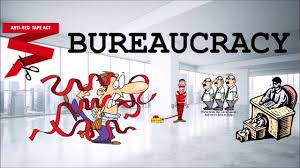
ZIMBABWEAN businesses are grinding to a halt under the weight of bureaucratic red tape, as regulated bottlenecks choke operations and stall growth, NewsDay Business understands.
These challenges are mounting intense pressure on the business community, with many now being forced to scale down operations, raise prices to survive, enter corporate rescue, or in some cases, close.
Further, the business community has rabidly complained about over taxation, wherein the Zimbabwe Revenue Authority continues to plough through company earnings for every cent, amid declining Treasury revenue.
Speaking during a regulatory impact assessment stakeholder dialogue held in Harare yesterday, Confederation of Zimbabwe Industries chief executive officer Sekai Kuvarika noted the challenging environment.
“Regulated bottlenecks are significantly hindering business operations in Zimbabwe, with some businesses forced to halt operations until regulatory requirements are fulfilled. The inefficiency is often attributed to multi-layered, and duplicative systems that hinder the speed of doing business,” she said.
“Government efficiency has become a crucial factor driving competitiveness, and improving it is essential to creating a favourable business environment.
“Zimbabwe’s competitive industrial performance rankings among Sadc countries also highlight the need for improvement, with South Africa leading the region and continent, respectively.”
Kuvarika added that the cost of compliance with regulations was prohibitively expensive for many small to medium enterprises (SMEs), with some businesses required to pay up to US$8 000 annually in regulatory fees alone.
- Business chokes under regulations, redtape
Keep Reading
This, it was revealed, has led to a situation where many businesses operate under the radar to avoid paying these fees.
According to the central bank, the informal sector, made up of SMEs, generate US$14,2 billion in revenue, annually, and US$2,5 billion in cash outside formal channels.
“All of us are aware that most of these SMEs are not even capitalised to that extent,” Kuvarika said.
“They do not have that kind of turnover and capital, so we are saying they should not be there because some of the violations there would actually cause the entity to be closed.”
She said regulating businesses was not being presented in a clear business case for addressing regulations.
“We usually present the burden of regulations, the cost of regulations, but I think we are not presenting the economic impact of those regulations,” Kuvarika said.
“It is when we address the economic impact of those regulations versus the positive economic impact that we will get when we implement competitive regulations, where I think, we will begin to make traction in terms of addressing the regulatory environment.
“Otherwise, the current or the previous methodology that we had is not yielding results fast enough.”
She said the lack of a competitive business regulatory environment had resulted in Zimbabwe losing market share in regional and international trade.
Industry and Commerce minister Nqobizitha Ndhlovu, in a speech read on his behalf by his deputy, Rajeshkumar Modi, said the government would implement various policy interventions to improve the country’s competitiveness.
He said the policy interventions include competitive energy policies, promotion of renewable energy and the modernisation of transport infrastructure and border posts.
“Various policy interventions measures will be implemented in order to improve the country’s competitiveness across the board,” Ndhlovu said.
“This includes competitive energy policies promoting renewable energy and encouraging industries to adopt energy efficiency standards such as ISO 5001.”
He added that the government would review sector-specific regulations to support innovation and growth in agriculture, manufacturing, and services, emphasising its commitment to working with the private sector and civil society to ensure laws and regulations serve all interests.
“We call upon all stakeholders’ public, private, local and international to work together on this national endeavour. True progress is the result of the collective efforts, shared vision and unwavering commitment to the greater good,” the minister said.
“This dialogue must go beyond discussion. It must align extendable steps to streamline businesses regulation, eliminate and lower the cost of compliance for industries in line with the call to action made by stakeholders at the inaugural Competitiveness Summit held in Bulawayo in February 2025.”










